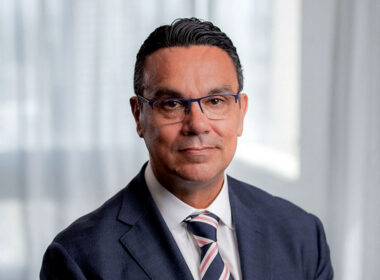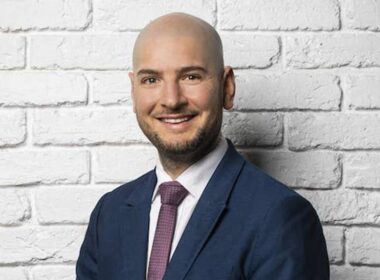Changing your approach to hiring older workers can broaden the talent pool, boost productivity and facilitate specialist expertise.
Common misconceptions
Negative stereotypes and assumptions about a “use-by date” are substantial barriers to career progression for many older Australian workers.
“The typical pervasive assumptions about older workers are that they are no good with technology, stuck in their ways, just looking for a path to retirement or just generally slow, to name the top four,” says Marlene Krasovitsky, co-chair of The Benevolent Society’s EveryAGE Counts advocacy campaign.
Fionn Bowd, CEO of legal recruitment firm Bowd, says similar misconceptions about older workers – which she says can kick in from age 45 – permeate the legal profession.
“When people have preconceived ideas about what an older lawyer is going to be like, these preconceived ideas are normally pretty negative,” she says. “That is, they’re not going to be any good with technology, they might be difficult to work with, they might not be able to take direction from a younger manager and may even challenge their authority.”
Even though research shows these assumptions don’t bear out (or can be traits of any age group) Krasovitsky says they prevent older workers from having equitable access to job opportunities.
“It’s all about ageism – all of the negative associations and stereotypes we carry that lead us to discriminatory behaviours and actions, intentional or unintentional.”
Linear expectations
It can be difficult for older lawyers to seek new opportunities or move sideways in less senior roles because of an expectation that age equals experience.
“Even though we have 30- to 35-year careers as lawyers, there aren’t a lot of places for people to go once they hit about 50,” says Bowd.
“You’re expected to have made partner by 45. You don’t have many people in law firms who are 50 or older who aren’t partners. Outside of law firms, where you’re working for corporates and companies, you need to be in quite a senior role by that time.
“If you’re not in a senior role by 50, there may be an issue if you want to leave your organisation. You won’t be kicked out, but if you left because you didn’t get promoted and tried to get another role, you may face challenges if you are an older worker looking for a new job.”
The problem is compounded for many people who embark on a legal career later in life. David Heasley went back to university in his 30s after a corporate management career and began practising law in his early 40s. The 56-year-old says many larger firms weren’t interested in hiring mature-age graduates.
“As soon as people found out how old I was, any opportunities disappeared,” he says. “They wanted young, impressionable people to train in their way of doing things and who were willing to work for an older partner and wouldn’t ask questions.”
Heasley now runs his own practice, Heasley Lawyers, specialising in defence, an industry where he says age is less of an employment issue.
“By the time people get out into the civilian workforce, they’re 40-45 or older, so there’s very little ageism in defence.”
Krasovitsky says this pattern is typical of industries with linear career structures based on age.
“The assumption of age is built into the promotional opportunities within an organisation, and those assumptions run very deep across the organisational culture,” she says. “These practices are based on the notion of a chronological age even though there is a whole lot of heterogeneity around people beyond their chronological age.”
“They wanted young, impressionable people to train in their way of doing things and who were willing to work for an older partner and wouldn’t ask questions.”
Older and wiser
Far from biding time until retirement, research shows older workers bring a diverse skillset to the workforce. They can look at business operations from a different perspective, fill knowledge gaps and mentor less-experienced staff, which has flow-on effects including increased productivity and lower rates of absenteeism.
In fact, a recent World Economic Forum report identified several distinct competitive advantages associated with hiring older workers, including better efficiency owing to experience and wisdom, and facilitation of intergenerational learning and collaboration.
Bowd says older lawyers are usually calm under pressure and often bring a wide range of experience to new roles, including in-house expertise.
“It’s not often that a law firm lawyer will have had time working in-house, whereas an older lawyer will very often be coming from a mixed background of in-house and private practice,” she says. “What the firms get is someone who has this extra experience of having worked on the client side, which they then bring to the table inside the firm.”
Sixty-four-year-old Lee Aitken has enjoyed a 43-year career as a barrister, solicitor and law school educator in Canada, Hong Kong and Australia. He says he’s often called on to provide specialised expertise that firms simply don’t have – something at which he says older professionals are particularly adept.
“On occasion, there may be a specialised problem in an area of your expertise – say insolvency or the PPSA,” says Aitken. “Depending on the size of the firm you may be able to point the team in the right direction on their advice. You can provide a lot of value in that situation.”
Plus, he says, senior people who aren’t partners can be effective mentors.
“If you’ve got someone older, more senior and wiser, you can raise matters with them that you can’t raise for possible career reasons with your partner or someone else in the hierarchy,” says Aitken.
“There may be some issue with a file, client, transaction or case. A younger, less experienced lawyer might want expert advice but doesn’t want to flag it as a difficulty.”
Equitable recruitment
Rather than switching focus to consciously recruit older workers, Krasovitsky says equitable recruitment processes will help to ensure everyone has fair employment opportunities regardless of age.
“It’s important not to create a whole bunch of new stereotypes that pit one generation against the other by saying, ‘All older people are this and all younger people are that’ as that’s simply not the case,” she says. “What employers can do is ensure their recruitment, selection, retention and promotion processes are equitable and don’t inadvertently or advertently discriminate against older people.”
She recommends removing words and phrases like “innovative”, “vibrant”, “go-getter” and “up-and-coming” from job advertisements as they are “are often used as euphemisms for young” and can indicate “pretty clearly who you want to apply”.
Other effective strategies include looking at recent recruitment and retention processes to ensure staff across the organisation represent a wide range of age brackets. Diversity and inclusion strategies that list age as a criterion for diversity are another important tool. “A lot of firms have excellent strategies but simply omit age,” says Krasovitsky.
Above all, she says, employers must talk with potential and existing employees about their plans and preferences.
“This helps base decisions on facts, not assumptions or stereotypes that you might have in your head about what that person is looking for, what that person wants or what that person could do,” says Krasovitsky.
It’s an approach seconded by Helen Fields, a senior-lawyer-turned-commercial head who manages a team of 40 at Telstra InfraCo and works closely with legal professionals.
“Every employer needs to understand their employees’ motivations and what drives them to come to work and what drives them to excel,” she says.
Fields says older workers tend to have a “good sense of what they need to keep themselves healthy and motivated” and may no longer want to work 14-hour days. But it’s important to put generalisations aside and recognise that everyone has different expectations – especially when it comes to retirement.
“I’m 50 and I plan to work in some capacity until I drop dead and can’t work at all because it keeps the brain moving and keeps me fresh,” says Fields.
Fixed-term solutions
Where perceptions about age-based seniority are hard to shift, engaging older workers on a contract or fixed-term basis can be an effective strategy.
“It helps to get older people in the door and gives them an opportunity to showcase what they can do, rather than the employer getting fixated on the perceived risks of hiring someone who is older,” says Bowd. “It’s not a permanent hire, it’s just an extra pair of hands. If it doesn’t work out, you don’t extend the contract.”
Aitken agrees this approach can smooth out issues with new recruits sharing an age bracket with senior partners.
“The ideal role if you’re an older player is to come in on a fixed-price arrangement with a firm where you don’t have any time sheet requirements,” he says. “You’re simply available to be consulted by anyone who wants to consult you. If you’ve got no timesheet, your time won’t go in anyone else’s file.”
Whatever the role, firm or terms of employment, Krasovitsky recommends making decisions based on facts, not assumptions.
“What is old? Is it 45 or is it 75? I don’t know. And what does it matter?” she says. “It’s really about what the person can bring and whether they’re the right fit.”




